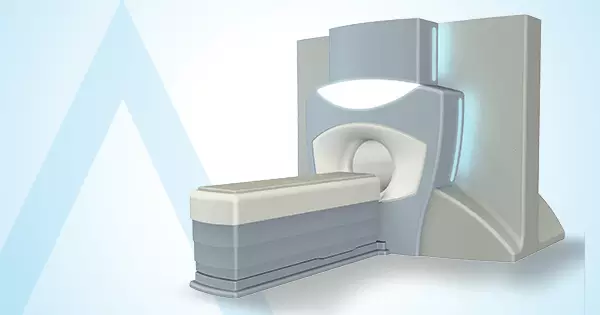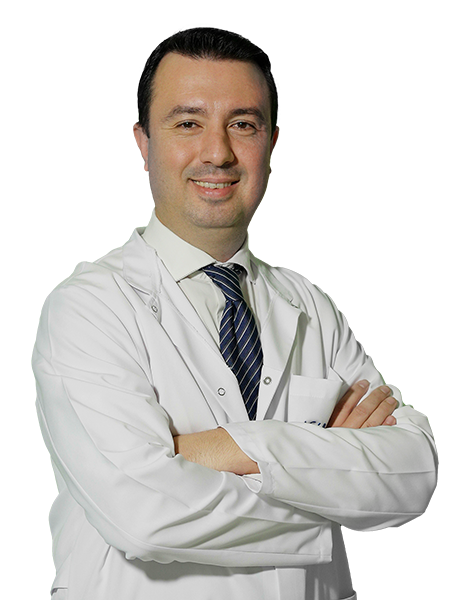End-stage kidney failure is characterized by complete loss of kidney functions and requirement of dialysis and kidney transplant to survive. Kidney transplant is a surgical procedure that transfers one kidney of a donor to the patient. A kidney of a living or deceased donor can be used for transplant.
Diagnosis and Treatment Services Available in Kidney Transplant Center
Acıbadem Kidney Transplant Centers offer diagnosis and treatment services for both adults and children based on a multidisciplinary approach in fields of radiology and anesthesiology.
Laparoscopic technique, also called closed method, is usually preferred for donor nephrectomy that implies surgical removal of donor kidney. Kidney is removed with transvaginal approach in selected female donors. Undergoing kidney transplant surgery in Acıbadem Kidney Transplant Centers, the patients are postoperatively followed up at regular intervals by relevant teams of the center.
What is end-stage kidney failure?
End-stage kidney failure implies “irreversible impairment of renal functions”. End-stage kidney failure is characterized by complete loss of kidney functions and requirement of dialysis and kidney transplant to survive.
Each patient with documented end-stage kidney failure should be evaluated regarding kidney transplant! Kidney transplant is a surgical procedure that transfers one kidney of a donor to the patient. There are two sources of donor kidney: A living donor or a deceased donor (a person with verified brain death).
Which relatives can be a donor?
“National Organ and Tissue Transplant Coordination System” is put into force by Ministry of Health in order to facilitate supervision and audit of living donor organ and tissue transplantation. Accordingly, living donor organ and tissue transplantation is approved for up to fourth degree (included) blood and in-law relatives.
Organ and tissue donor candidates who fulfill this criterion are discussed in Local Ethics Committee of relevant Organ and Tissue Transplant Center and a transplant surgery is performed only after it is verified that certain criteria are met.
Regarding fourth degree relation, Article 17 of Turkish Civil Code states as follows: degree of blood relation is determined through number of deliveries, which relates kin to each other.
According to Degree of Blood Relation;
First degree relative: Mother, father, kid
Second degree relative: Sibling, grandfather, grandmother and grandson.
Third degree relative: Paternal uncle, paternal aunt, maternal uncle, maternal aunt, nephew (kid of sibling).
Fourth degree relative: Children of third degree relatives.
For in-law relation, relatives of the spouse are identically determined.
Unrelated Donors
Living donor organ transplant can use organs donated by spouse, who is actually married for two years, and up to fourth degree blood and in-law relatives.
On the other hand, persons with no blood or in-law relation can donate organs. However, relevant laws mandate a very careful investigation.
For living donor transplants excluding above mentioned living donors, the Ethics Committee of the city, where the transplant surgery will be performed, should verify that there is no illegal link between the donor and the recipient and organ donation is appropriate from perspective of ethics.
In this case, the recipient and the donor should be referred by Provincial Health Directorate to the committee.
Who cannot be a living donor for kidney transplant?
- Below 18 years of age
- People with hypertension (>140/90 mmHg) or who uses antihypertensive agent.
- Diabetics
- Proteinuria (250 mg/24 hours),
- History of recurrent kidney stone,
- Low GFR (<80 ml/min)
- Microscopic hematuria
- Urologic anomalies in kidney
- People with a severe medical condition (chronic lung disease, recently diagnosed cancer)
- Obesity (people with body weight >305 of optimal body weight)
- History of thrombosis or thromboembolism
- Individuals with psychiatric disease
- Family history strongly notable for diabetes mellitus, hypertension and kidney disease.
Why is living donor preferred for kidney transplant?
Living donor is a preferable condition for kidney transplant. It has many advantageous for the patient over kidneys removed from people with verified brain death.
- Better short-term outcomes (Survival rate of graft: 95% vs. 90%)
- Better long-term outcomes (Survival of graft: 12 to 20 years vs. 8 to 9 years)
- Earlier onset of renal functions and easier manipulation of patient
- Lack of stress arising out of brain death
- Lower probability of late-onset functioning of graft
- Bridging to transplant for the transplant team and the patient
- Relatively milder immunosuppression
- Psychological support, as the pressure of supplying a kidney from a donor with brain death is eliminated
How is a kidney selected that is most appropriate for the transplant?
Kidney transplant surgery requires ABO compatibility between the donor and the recipient, as is the case with blood transfusion. 0 is the blood type of general donor and AB implies the blood type of general recipient. According to this rule;
Rh system is not a factor for kidney transplant. A person with Rh negative blood can donate one kidney to a patient with Rh positive blood. Tissue typing is also required for the recipient and the donor. However, it should be known that tissue match is not a must for kidney transplant.
What is crossover transplantation?
This method is reserved for patients with no blood type-compatible donor among relatives. If a related donor volunteers to donate kidney despite ABO incompatibility, the pair of this incompatible donor and recipient is matched with another incompatible pair in organ transplant centers, provided tissue match is taken into consideration.
For example, a related donor with Blood Type B of a recipient with Blood Type A donates kidney to another patient with Blood Type B, while the donor with blood Type A of the second patient donates kidney to the first patient.
Patients with blood type A or B can be candidate of crossover transplantation, if there is no donor with compatible blood type. Here, one should know that chance of crossover transplant is lower for patients with Blood Type 0 or AB.
May a donor organ removed while patient is in coma or vegetative state?
Brain death of a person should be necessarily verified in order to remove a donor organ. People with confirmed brain death have no chance to survive. On the other hand, a person in coma or vegetative state may survive, as the function of brain is not irreversibly lost. Therefore, a donor organ cannot be removed while a person is in coma.
How is an organ of a person with confirmed brain death transferred?
Removal of kidney from a person with confirmed brain death, but with a beating heart: This group of patients mostly consists of people with cranial trauma secondary to traffic accident or a cerebral hemorrhage secondary to various causes. Organs of these patients form the most important source of transplants from a donor with confirmed brain death.
Removal of kidney from a person with confirmed brain death and non-beating heart: Heart of these patients stops beating after brain death is confirmed. Organ supply from these patients is more difficult than patients with beating heart and verified brain death. It is not commonly performed in our country.
What happens after organs of a patient with brain death are donated?
Relevant laws of our country impose that for a deceased donor kidney transplant, the donor should have donated organs while s/he was alive or consent is obtained from relatives after brain death of the donor is confirmed.
After consent is obtained, the donor is transferred to intensive care unit and blood compatibility and tissue match are examined. Organs are transferred to recipients who are selected over the waiting list, where relevant characteristics and tissue types of patients are recorded. If a removed organ will be transferred to a patient in another transplant center, appropriate storage conditions are ensured for the organ and it is transported to the center with the fastest transportation means available.
Doctors
-
![Prof. A. BÜLENT OKTAY, M.D.]() Prof. A. BÜLENT OKTAY, M.D.
Kidney Transplant Center
Book an Appointment
Prof. A. BÜLENT OKTAY, M.D.
Kidney Transplant Center
Book an Appointment
-
![Prof. HAMDİ KARAKAYALI, M.D.]() Prof. HAMDİ KARAKAYALI, M.D.
Kidney Transplant Center
Book an Appointment
Prof. HAMDİ KARAKAYALI, M.D.
Kidney Transplant Center
Book an Appointment
-
![Prof. HÜSEYİN TÖZ, M.D.]() Prof. HÜSEYİN TÖZ, M.D.
Kidney Transplant Center
Book an Appointment
Prof. HÜSEYİN TÖZ, M.D.
Kidney Transplant Center
Book an Appointment
-
![Prof. İBRAHİM BERBER, M.D.]() Prof. İBRAHİM BERBER, M.D.
Kidney Transplant Center
Book an Appointment
Prof. İBRAHİM BERBER, M.D.
Kidney Transplant Center
Book an Appointment
-
![Prof. MURAT ŞAMLI, M.D.]() Prof. MURAT ŞAMLI, M.D.
Kidney Transplant Center
Book an Appointment
Prof. MURAT ŞAMLI, M.D.
Kidney Transplant Center
Book an Appointment
-
![Prof. ÜLKEM ÇAKIR, M.D.]() Prof. ÜLKEM ÇAKIR, M.D.
Kidney Transplant Center
Book an Appointment
Prof. ÜLKEM ÇAKIR, M.D.
Kidney Transplant Center
Book an Appointment
-
![Assoc. Prof. ÇAĞLAR RUHİ, M.D.]() Assoc. Prof. ÇAĞLAR RUHİ, M.D.
Kidney Transplant Center
Book an Appointment
Assoc. Prof. ÇAĞLAR RUHİ, M.D.
Kidney Transplant Center
Book an Appointment
-
![Assoc. Prof. EBRU SEVİNÇ OK, M.D.]() Assoc. Prof. EBRU SEVİNÇ OK, M.D.
Kidney Transplant Center
Book an Appointment
Assoc. Prof. EBRU SEVİNÇ OK, M.D.
Kidney Transplant Center
Book an Appointment
-
![Assoc. Prof. EMRE GÜNAY, M.D.]() Assoc. Prof. EMRE GÜNAY, M.D.
Kidney Transplant Center
Book an Appointment
Assoc. Prof. EMRE GÜNAY, M.D.
Kidney Transplant Center
Book an Appointment
-
![Assoc. Prof. TONGUÇ UTKU YILMAZ, M.D.]() Assoc. Prof. TONGUÇ UTKU YILMAZ, M.D.
Kidney Transplant Center
Book an Appointment
Assoc. Prof. TONGUÇ UTKU YILMAZ, M.D.
Kidney Transplant Center
Book an Appointment
-
![EBRU ÖZDEMİR, M.D.]() EBRU ÖZDEMİR, M.D.
Kidney Transplant Center
Book an Appointment
EBRU ÖZDEMİR, M.D.
Kidney Transplant Center
Book an Appointment
-
![FERHAT OTO, M.D.]() FERHAT OTO, M.D.
Kidney Transplant Center
Book an Appointment
FERHAT OTO, M.D.
Kidney Transplant Center
Book an Appointment
-
![FILIZ HALMI MEHMED, M.D.]() FILIZ HALMI MEHMED, M.D.
Kidney Transplant Center
Book an Appointment
FILIZ HALMI MEHMED, M.D.
Kidney Transplant Center
Book an Appointment
-
![HÜSEYİN ÇELİK, M.D.]() HÜSEYİN ÇELİK, M.D.
Kidney Transplant Center
Book an Appointment
HÜSEYİN ÇELİK, M.D.
Kidney Transplant Center
Book an Appointment
-
![IŞIK HASAN ÖZGÜ, M.D.]() IŞIK HASAN ÖZGÜ, M.D.
Kidney Transplant Center
Book an Appointment
IŞIK HASAN ÖZGÜ, M.D.
Kidney Transplant Center
Book an Appointment
-
![MAHMUT ESAT DANIŞOĞLU, M.D.]() MAHMUT ESAT DANIŞOĞLU, M.D.
Kidney Transplant Center
Book an Appointment
MAHMUT ESAT DANIŞOĞLU, M.D.
Kidney Transplant Center
Book an Appointment
-
![MURAT YILDAR, M.D.]() MURAT YILDAR, M.D.
Kidney Transplant Center
Book an Appointment
MURAT YILDAR, M.D.
Kidney Transplant Center
Book an Appointment
-
![SALİH GÜLTEN, M.D.]() SALİH GÜLTEN, M.D.
Kidney Transplant Center
Book an Appointment
SALİH GÜLTEN, M.D.
Kidney Transplant Center
Book an Appointment
-
![UĞUR SARAÇOĞLU, M.D.]() UĞUR SARAÇOĞLU, M.D.
Kidney Transplant Center
Book an Appointment
UĞUR SARAÇOĞLU, M.D.
Kidney Transplant Center
Book an Appointment
-
![Psychologist DENİZ ERDEN]() Psychologist DENİZ ERDEN
Kidney Transplant Center
Book an Appointment
Psychologist DENİZ ERDEN
Kidney Transplant Center
Book an Appointment
-
![ELÇİN YÜCEBAŞ, M.D.]() ELÇİN YÜCEBAŞ, M.D.
Kidney Transplant Center
Book an Appointment
ELÇİN YÜCEBAŞ, M.D.
Kidney Transplant Center
Book an Appointment
Hospitals
-
![Atakent Hospital]() Atakent Hospital
Atakent Hospital -
![Ataşehir Hospital]() Ataşehir Hospital
Ataşehir Hospital -
![Bursa Hospital]() Bursa Hospital
Bursa Hospital -
![İzmir Kent Hospital]() İzmir Kent Hospital
İzmir Kent Hospital








































